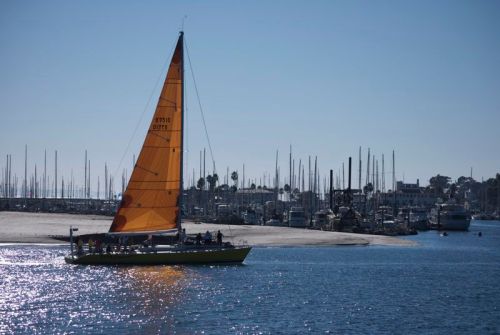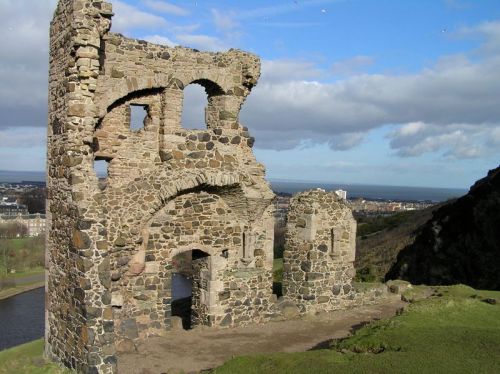
Personal statements are the only thing fully in our control.
Personal statements are hard. Hard to start, hard to write and hard to finish.
They feel like the most important part of an application and at the point of writing they are. Though not because they can influence an application completely, rather it is because it is the last and only thing wholly in our control in the later stages of an application.
GPA is set, letters are written and test scores are in. The only major aspect that can be changed is the personal statement. And so it feels so vital to the process.
I did a lot of pre-writing for my statement. I did several rounds of brainstorming, a couple outlines at least two false starts. Eventually I just gave in, sat down and wrote until I could think of no more. I wrote stream of consciousness with notes interjected into the writing and bracketed phrases that needed to be changed depending on the school. Once finished with this free write I went back and color coded comments according to if they are for editing, adding more in or just venting.
It sat on my desktop for a day before I went at it again. I kept every version I made just so I did not lose anything and so I could see how it evolved if I ever looked back at it. With a decent draft done I sent it off to two people who I trusted to edit it (both recently attained masters degrees in English related subjects) and give general advice.
My first draft was written on November 16th and the final version for all of the schools were finished December 9th. I have written previously about my experience writing the personal statement, mostly while I was in the depths of it.
One thing I found lacking on the internet was a personal statement for physics graduate school, so I am posting the general template I used for each school. I do this as a reference and I ask that no one copy it or plagiarize it in any way. Keep in mind that those reading these are not staff members but physics professors, who I would say are fairly smart people. And if someone can find this to copy so can they. For this draft I left blocks of text blank with [University] or [Professor], I filled these in with what I learned by talking to the professors, not just off the websites.
It is the intellectual challenge that drew me into science, the challenge of walking to the edge of the known and searching for the next step. I found this pursuit before my years at university through books such as Michio Kaku’s Hyperspace and Stephen Hawking’s The Universe in a Nutshell. These authors gave me an idea of how to think about the world as a physicist and what it could mean. When I read their words I did not know about the mathematical formalism behind the theories or even the idea such formalism existed. However, I did know that I wanted to study physics and enhance the knowledge of humanity. This aspiration has led me to apply to the [Department] at [University].
While many of my peers were beginning research positions with professors, I spent my junior year at Edinburgh University studying Astrophysics.
At Edinburgh my particle physics professor encouraged me to go to CERN’s last public open day. At CERN I found the work and challenges of the Compact Linear Collider completely fascinating. The guide gave a brief rundown of their current challenge involving the large electric field of the beam breaking down the walls of the waveguides. While she explained, I experienced a direct connection between classroom theory and a real problem faced by an experimental scientist.
It was the combination of my trip to CERN and my year of astrophysics courses that led me to the fields of space and solar physics. I enjoyed learning about stellar structure and evolution in my courses and the experimental aspect of plasma and high-energy physics at CERN demonstrated to me what can be done in a research setting. Most of my exposure to these fields has come from reading professors’ research and attending various colloquia at my university.
While I work on my research doctorate in space physics I am interested in pursuing research similar to [research] by [Professor]. My goal is to work on space related instruments and technology as well as focus on research that will aid in furthering the exploration and achievements outside of our own world. Research in space and solar science can help me pursue my goals.
I feel the most important class I took to prepare me for advanced research was my second year physics honor’s lab taught by [Professor]. This was a yearlong class designed to introduce how to conduct research. In the first quarter I was given a seemingly simple experiment, such as finding a relation between the size of a capillary and its rate of flow. There were no lab manuals or instructions, and while I was given help by the professor, every step had to be my own. The second quarter of the course was dedicated to two skills: learning LabView in order to regulate the temperature of a copper bar and learning how to fabricate parts in the department’s machine shop. In the final quarter the class collaborated on building a piece of equipment for another professor. For this I learned basic drafting, CAD software, realistic design and how to work with a group on a project.
During my time abroad I applied for several summer REU programs so I could do some real research. Unfortunately, most of the programs were too impacted and I was unable to research over the summer. At the start of this year I contacted and joined [Professor] in his Experimental Cosmology group here at UCSB. I am currently working on two projects, the first is a cryogenic heat pipe and the second is using a micron bolometer for atmospheric modeling. The goal of the heat pipe project is to create an efficient cooling system for the next balloon borne instrument, the COsmic Foreground Explorer (COFE) that the lab will launch sometime next year. For the micron bolometer, I am currently designing and building an enclosure for long term outdoor use. The goal is to predict cloud formation to facilitate several of the telescopes operated by the group in the Sierra Nevada Mountains.
I realize I have only begun what will become a lifetime of research and discovery, and to that end I am applying to the [University]. I feel that my skills and curiosity will be a match for the program at your university. I am looked forward to participating in the research opportunities offered by the [University] specifically in [research topics]. Along with the research being done by [Professor], I am also interested in the research on [research topic 2] being done by [Professor]. My background in astrophysics and my work with [Professor] has readied me for this kind of research and participation. I consider acceptance to the graduate program at the [University] one of the best opportunities I will have to pursue my research interests will lead to an even better understanding of how the world works.
Since this is a personal statement most of this will only apply to me but I hope that the general structure and topics will help others writing their own personal statement.

